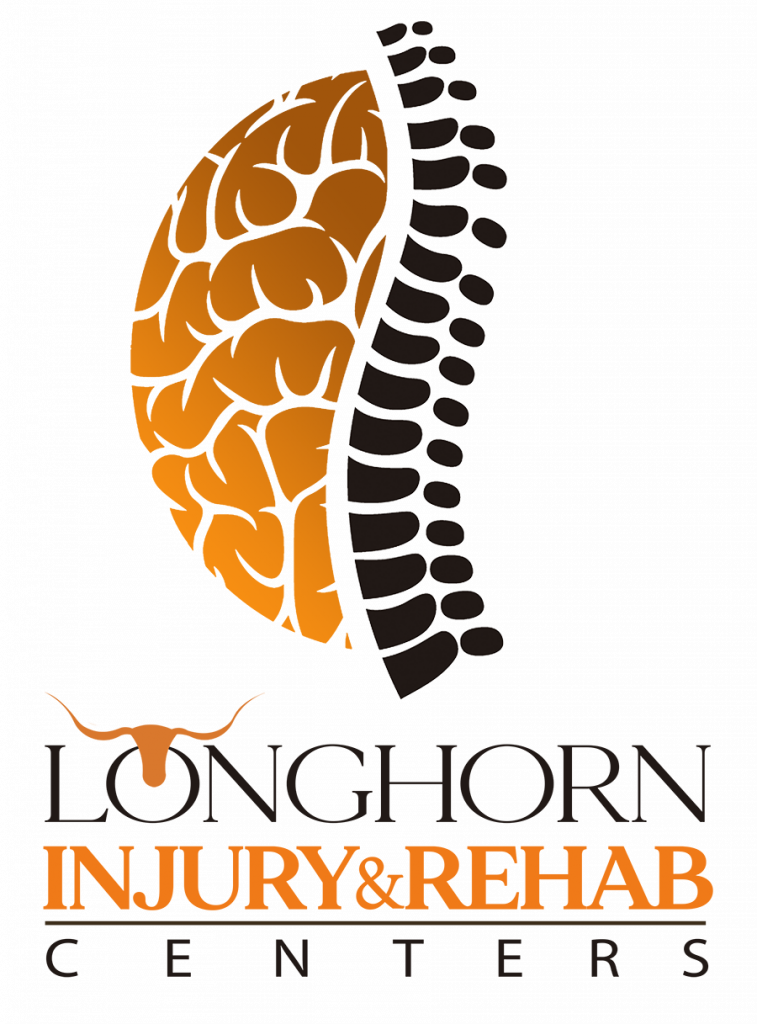
Beyond the Aches: When to See a Chiropractor?
Back Pain Chiropractor | New Patient Special | $59 Chiropractic Adjustment
In the fast-paced world we live in, it’s not uncommon for individuals to dismiss minor aches and pains as part of the daily grind. However, our bodies often communicate signals that should not be ignored. Enter chiropractic care – a holistic approach to health that focuses on the musculoskeletal system, particularly the spine. In this extensive blog post, we’ll explore the signs and condiditions that indicate you may need a chiropractor. From persistent pain to lifestyle factors, we’ll unravel the mysteries behind when to consider seeking the expertise of a chiropractic professional.
What is Chiropractic Care?

Before delving into the signs that may indicate a need for chiropractic care, let’s establish a foundational understanding of what chiropractic care entails. Chiropractors are healthcare professionals who specialize in the diagnosis and treatment of mechanical disorders of the musculoskeletal system, with a primary focus on the spine. Their goal is to optimize the relationship between the spine and the nervous system to enhance overall well-being.
The Role of Chiropractors

Chiropractors are healthcare professionals specializing in the diagnosis and treatment of mechanical disorders of the musculoskeletal system, with a primary focus on the spine. They employ a variety of techniques, including spinal adjustments and soft tissue therapies, to alleviate pain, improve mobility, and enhance overall well-being.
New Patient Special | Chiropractic Adjustment in $59
Longhorn Injury is offering Initial Chiropractic Consultation along with Chiropractic Adjustment Care in just $59 in Dallas, Texas. Get in touch with the best chiropractors and experience pro chiropractic adjustment in Dallas, Texas. Make an appointment or call our Dallas, TX Chiropractic Clinic today.
Core Principles of Chiropractic Care

-
Innate Healing Ability: Chiropractors believe in the body’s innate ability to heal itself, viewing their role as facilitators in supporting this natural healing process.
- Spinal Alignment: Proper spinal alignment is crucial for optimal nervous system function. Chiropractors work to identify and correct misalignments (subluxations) in the spine.
-
Holistic Approach: Chiropractic care often takes a holistic approach, considering the interconnectedness of various bodily systems. Lifestyle factors, nutrition, and exercise are integral components of this approach.
Common Signs You Might Need a Chiropractor

Recognizing the signs that you might need a chiropractor involves paying attention to your body and being aware of persistent discomforts or changes in your overall well-being. While not an exhaustive list, the following are common signs that may indicate it’s time to consider chiropractic care:
-
Persistent Pain:
- Indicator: If you experience persistent pain, especially in the back, neck, or joints, it could be a sign of underlying musculoskeletal issues. This is a primary reason many people seek chiropractic care.
-
Limited Range of Motion:
- Indicator: Difficulty moving a joint through its full range of motion, coupled with stiffness, may suggest issues that a chiropractor can address. This is often observed in conditions affecting the spine or other joints.
-
Headaches:
- Indicator: Frequent headaches, especially those originating from tension or misalignments in the neck and spine, may indicate a need for chiropractic evaluation and treatment.
-
Poor Posture:
- Indicator: Persistent poor posture, whether due to lifestyle habits or underlying musculoskeletal issues, can contribute to pain and discomfort that a chiropractor can help alleviate.
-
Muscular Imbalances:
- Indicator: If you experience persistent muscle tightness or weakness, it may signal the presence of muscular imbalances that a chiropractor can address through targeted therapies.
-
Recent Injuries:
- Indicator: If you’ve recently experienced injuries from sports, accidents, or falls and are dealing with lingering pain or mobility issues, a chiropractor can assist in the recovery process.
-
Sciatica:
- Indicator: Persistent pain that radiates along the path of the sciatic nerve, typically affecting the lower back, buttocks, and legs, may suggest the need for chiropractic intervention.
-
Herniated Disc:
- Indicator: Symptoms such as shooting pain, numbness, or weakness in the limbs may suggest a herniated disc, warranting chiropractic evaluation and treatment.
-
Scoliosis:
- Indicator: Uneven shoulders or hips, or back pain associated with scoliosis, may prompt a chiropractic assessment to manage symptoms and provide supportive care.
-
Arthritis:
- Indicator: Chiropractors can offer supportive care for arthritis by addressing joint function and providing exercises to improve range of motion.
-
Digestive Issues:
- Indicator: Some people find relief from certain digestive issues, such as irritable bowel syndrome (IBS), through chiropractic care. This is because the nervous system, including the nerves in the spine, plays a role in digestive function.
-
Chronic Fatigue:
- Indicator: Chronic fatigue may be linked to issues such as poor sleep quality, stress, or underlying musculoskeletal problems that a chiropractor can address.
-
Frequent Infections:
- Indicator: A compromised nervous system due to spinal misalignments may impact the immune system. Some individuals find chiropractic care beneficial for overall immune system support.
It’s important to note that while chiropractic care can be beneficial for various conditions, it’s not a replacement for primary medical care in certain situations. If you experience severe trauma, have underlying medical conditions, or are unsure about the cause of your symptoms, consulting with both a chiropractor and your primary healthcare provider is advisable. Chiropractors can play a valuable role in managing musculoskeletal health and promoting overall well-being when the signs suggest that their expertise is needed.
Chiropractors are trained to address a variety of musculoskeletal conditions and related issues. While chiropractic care is not a cure-all, it can be particularly beneficial for certain conditions. Here are specific conditions that may warrant chiropractic care:
-
Sciatica:
- Description: Sciatica is characterized by pain that radiates along the sciatic nerve, often originating in the lower back and traveling down the back of the leg.
- Chiropractic Approach: Chiropractors may use spinal adjustments to alleviate pressure on the sciatic nerve, providing relief from pain and discomfort.
-
Herniated Disc:
- Description: A herniated disc occurs when the soft inner material of a spinal disc leaks out, potentially pressing on nearby nerves.
- Chiropractic Approach: Chiropractors can employ spinal adjustments to reduce pressure on the affected disc, helping to alleviate symptoms and improve mobility.
-
Scoliosis:
- Description: Scoliosis involves an abnormal curvature of the spine, which can lead to uneven shoulders or hips and back pain.
- Chiropractic Approach: Chiropractic care may involve adjustments to improve spinal alignment, potentially reducing discomfort associated with scoliosis.
-
Arthritis:
- Description: Arthritis is the inflammation of joints, often resulting in pain, stiffness, and reduced range of motion.
- Chiropractic Approach: Chiropractors can provide supportive care for arthritis by addressing joint function through adjustments and prescribing exercises to enhance flexibility.
-
Chronic Headaches and Migraines:
- Description: Recurrent, severe headaches or migraines can be caused by various factors, including tension and misalignments in the spine.
- Chiropractic Approach: Chiropractors may use spinal adjustments and soft tissue therapies to address underlying causes, potentially reducing the frequency and intensity of headaches.
-
Neck Pain:
- Description: Neck pain may result from poor posture, muscle strain, or misalignments in the cervical spine.
- Chiropractic Approach: Chiropractors often employ cervical adjustments and other techniques to alleviate neck pain and improve overall function.
-
Lower Back Pain:
- Description: Lower back pain is a common issue and can result from various causes, including muscle strain, poor posture, or spinal misalignments.
- Chiropractic Approach: Spinal adjustments, along with soft tissue therapies, are frequently used by chiropractors to address lower back pain and promote healing.
-
Tension and Stress-Related Disorders:
- Description: Chronic stress and tension can manifest as musculoskeletal issues, including muscle tightness and discomfort.
- Chiropractic Approach: Chiropractors may use adjustments and relaxation techniques to alleviate tension, contributing to overall stress reduction.
-
Plantar Fasciitis:
- Description: Plantar fasciitis involves inflammation of the tissue on the bottom of the foot, leading to heel pain.
- Chiropractic Approach: Chiropractors may address biomechanical issues and provide exercises to support the feet, helping to alleviate plantar fasciitis symptoms.
-
Carpal Tunnel Syndrome:
- Description: Carpal tunnel syndrome is characterized by numbness, tingling, and weakness in the hand due to compression of the median nerve in the wrist.
- Chiropractic Approach: Chiropractors may use adjustments to the wrist and arm, along with exercises, to help alleviate symptoms associated with carpal tunnel syndrome.
-
Pregnancy-Related Pain:
- Description: Pregnant individuals may experience musculoskeletal pain, particularly in the lower back and pelvis, due to the changes in the body during pregnancy.
- Chiropractic Approach: Chiropractors can provide gentle adjustments and exercises to address pregnancy-related pain and discomfort.
-
Sports Injuries:
- Description: Athletes often experience injuries related to overuse, strain, or trauma during sports activities.
- Chiropractic Approach: Chiropractors can assist in the recovery from sports injuries by addressing musculoskeletal imbalances, promoting healing, and preventing future issues.
It’s important to note that chiropractic care is a complementary approach, and the effectiveness of treatment may vary from person to person. Before seeking chiropractic care, it’s advisable to consult with a healthcare professional to ensure that chiropractic interventions are suitable for your specific condition. Chiropractors often collaborate with other healthcare providers to offer a comprehensive approach to musculoskeletal health and well-being.
Conclusion: When You Need a Chiropractor?

Deciphering whether you need a chiropractor involves paying attention to your body’s signals and recognizing when symptoms may be indicative of underlying musculoskeletal issues. Remember, early intervention is key to preventing minor issues from escalating into chronic conditions. If you find yourself grappling with persistent pain, limited range of motion, or other signs discussed, consulting with a chiropractor can be the first step towards a healthier, pain-free life. Chiropractic care offers a holistic approach that not only addresses symptoms but aims to optimize your overall well-being. Listen to your body, and when in doubt, consider consulting with a qualified chiropractic professional to explore the best course of action for your unique needs.
Don’t Let Pain Dictate Your Life. Schedule A Consultation Today.
Call Now +1-844-589-7246
Looking for a chiropractor near me in Dallas, TX? Longhorn Injury provides chiropractic adjustment for back, neck & sciatic pain relief. Moreover, we provide consultation, diagnostic and therapeutic services for patients suffering from a variety of acute and chronic pain conditions.
Contact us for Best Chiropractors in Dallas, Texas for an Appointment Today.
At what age should you see a chiropractor?
The simple answer is you can take your child to a chiropractor when he is a few months old. Most chiropractors see children who are below 18 years, and some see babies below two years old. Infants and young children can benefit from chiropractic care.
What are the signs of a good chiropractor?
He or she will offer good advice for avoiding that pain in the future, as well as sensible nutrition and supplement tips. There's nothing gimmicky or questionable in their approach to your care, and they work well with other professionals.
How do I know if I need to see a chiropractor or a physiotherapist?
The main difference between a Physio and chiropractor is traditionally chiropractors focus more on the function of the spine and pelvis and it's alignment and effect on the nervous system through the use of manipulation, where a Physio will focus more on the muscles using mobilisations and exercises.
Can chiropractor fix posture?
Furthermore, a chiropractor can improve slouching or forward head carriage, which can strain the spine, making it critical to maintain good posture. A chiropractor can improve hunchback, uneven hips, pelvis, scoliosis, kyphosis, and damage to the spine's natural curvature, which will naturally improve posture.
Can everyone go to a chiropractor?
If there is a physical abnormality or injury in your body, such as a fracture, chiropractic care may not be for you. People with osteoporosis and those with fragile health should also check before beginning chiropractic care.



